- Home
- Michael Connelly
9 Dragons
9 Dragons Read online
9 Dragons
Michael Connelly
Harry Bosch is assigned a homicide call in South L.A. that takes him to Fortune Liquors, where the Chinese owner has been shot to death behind the counter in an apparent robbery.
Joined by members of the department's Asian Crime Unit, Bosch relentlessly investigates the killing and soon identifies a suspect, a Los Angeles member of a Hong Kong triad. But before Harry can close in, he gets the word that his young daughter Maddie, who lives in Hong Kong with her mother, is missing.
Bosch drops everything to journey across the Pacific to find his daughter. Could her disappearance and the case be connected? With the stakes of the investigation so high and so personal, Bosch is up against the clock in a new city, where nothing is at it seems.
Michael Connelly
9 Dragons
Book 14 in the Harry Bosch series, 2009
PART ONE: Homicide Special
1
From across the aisle Harry Bosch looked into his partner’s cubicle and watched him conduct his daily ritual of straightening the corners on his stacks of files, clearing the paperwork from the center of his desk and finally placing his rinsed-out coffee cup in a desk drawer. Bosch checked his watch and saw it was only three-forty. It seemed that each day, Ignacio Ferras began the ritual a minute or two earlier than he had the day before. It was only Tuesday, the day after Labor Day weekend and the start of a short week, and already he was edging toward the early exit. This routine was always prompted by a phone call from home. There was a wife waiting there with a toddler and a brand-new set of twins. She watched the clock like the owner of a candy store watches the fat kids. She needed the break and she needed her husband home to deliver it. Even across the aisle from his partner, and with the four-foot sound walls separating work spaces in the new squad room, Bosch could usually hear both sides of the call. It always began with “When are you coming home?”
Everything in final order at his workstation, Ferras looked over at Bosch.
“Harry, I’m going to take off,” he said. “Beat some of the traffic. I have a lot of calls out but they have my cell. No need waiting around for that.”
Ferras rubbed his left shoulder as he spoke. This was also part of the routine. It was his unspoken way of reminding Bosch that he had taken a bullet a couple years before and had earned the early exit.
Bosch just nodded. The issue wasn’t really about whether his partner left the job early or what he had earned. It was about his commitment to the mission of homicide work and whether it would be there when they finally got the next call out. Ferras had gone through nine months of physical therapy and rehab before reporting back to the squad room. But in the year since, he had worked cases with a reluctance that was wearing thin for Bosch. He wasn’t committed and Bosch was tired of waiting for him.
He was also tired of waiting for a fresh kill. It had been four weeks since they’d drawn a case and they were well into the late summer heat. As certain as the Santa Ana winds blowing down out of the mountain passes, Bosch knew a fresh kill was coming.
Ferras stood up and locked his desk. He was taking his jacket off the back of the chair when Bosch saw Larry Gandle step out of his office on the far side of the squad room and head toward them. As the senior man in the partnership, Bosch had been given the first choice of cubicles a month earlier when Robbery-Homicide Division started to move over from the decrepit Parker Center to the new Police Administration Building. Most detective 3s took the cubicles facing the windows that looked out on City Hall. Bosch had chosen the opposite. He had given his partner the view and took the cube that let him watch what was happening in the squad room. Now he saw the approaching lieutenant and he instinctively knew that his partner wasn’t going home early.
Gandle was holding a piece of paper torn from a notepad and had an extra hop in his step. That told Bosch the wait was over. The call out was here. The fresh kill. Bosch started to rise.
“Bosch and Ferras, you’re up,” Gandle said when he got to them. “Need you to take a case for South Bureau.”
Bosch saw his partner’s shoulders slump. He ignored it and reached out for the paper Gandle was holding. He looked at the address written on it. South Normandie. He’d been there before.
“It’s a liquor store,” Gandle said. “One man down behind the counter, patrol is holding a witness. That’s all I got. You two good to go?”
“We’re good,” Bosch said before his partner could complain.
But that didn’t work.
“Lieutenant, this is Homicide Special,” Ferras said, turning and pointing to the boar’s head mounted over the squad room door. “Why are we taking a rob job at a liquor store? You know it was a banger and the South guys could wrap it up-or at least put a name on the shooter-before midnight.”
Ferras had a point. Homicide Special was for the difficult and complex cases. It was an elite squad that went after the tough cases with the relentless skill of a boar rooting in the mud for a truffle. A liquor store holdup in gang territory hardly qualified.
Gandle, whose balding pate and dour expression made him a perfect administrator, spread his hands in a gesture offering a complete lack of sympathy.
“I told everybody in the staff meeting last week. We’ve got South’s back this week. They’ve got a skeleton crew on while everybody else is in homicide school until the fourteenth. They caught three cases over the weekend and one this morning. So there goes the skeleton crew. You guys are up and the rob job is yours. That’s it. Any other questions? Patrol is waiting down there with a witness.”
“We’re good, Boss,” Bosch said, ending the discussion.
“I’ll wait to hear from you, then.”
Gandle headed back to his office. Bosch pulled his coat off the back of his chair, put it on and then opened the middle drawer of his desk. He took the leather notebook out of his back pocket and replaced the pad of lined paper in it with a new one. A fresh kill always got a fresh pad. That was his routine. He looked at the detective shield embossed on the notebook flap and then returned it to his back pocket. The truth was, he didn’t care what kind of case it was. He just wanted a case. It was like anything else. You fall out of practice and you lose your edge. Bosch didn’t want that.
Ferras stood with his hands on his hips, looking up at the clock on the wall over the bulletin boards.
“Shit,” Ferras said. “Every time.”
“What do you mean, ‘every time?’” Bosch said. “We haven’t caught a case in a month.”
“Yeah, well, I was getting used to that.”
“Well, if you don’t want to work murders, there’s always a nine-to-five table like auto theft.”
“Yeah, right.”
“Then, let’s go.”
Bosch stepped out of the cubicle into the aisle and headed toward the door. Ferras followed, pulling his phone out so he could call his wife and give her the bad news. On the way out of the squad room, both men reached up and patted the boar on its flat nose for good luck.
2
Bosch didn’t need to lecture Ferras on the way to South L.A. His driving in silence was his lecture. His young partner seemed to wither under the pressure of what was not said and finally opened up.
“This is driving me crazy,” he said.
“What is?” Bosch asked.
“The twins. There’s so much work, so much crying. It’s a domino effect. One wakes up and that starts the other one up. Then my oldest kid wakes up. Nobody’s getting any sleep and my wife is…”
“What?”
“I don’t know, going crazy. Calling me all the time, asking when I’m coming home. So I come home and then it’s my turn and I get the boys and I get no break. It’s work, kids, work, kids, work, kids every day.”
> “What about a nanny?”
“We can’t afford a nanny. Not with the way things are, and we don’t even get overtime anymore.”
Bosch didn’t know what to say. His daughter, Madeline, was a month past her thirteenth birthday and almost ten thousand miles away from him. He had never been directly involved in raising her. He saw her four weeks a year-two in Hong Kong and two in L.A.-and that was it. What advice could he legitimately give a full-time dad with three kids, including twins?
“Look, I don’t know what to tell you,” he said. “You know I’ve got your back. I’ll do what I can when I can. But-”
“I know, Harry. I appreciate that. It’s just the first year with the twins, you know? It will be a lot easier when they get a little older.”
“Yeah, but what I’m trying to say here is that maybe it’s more than just the twins. Maybe it’s you, Ignacio.”
“Me? What are you saying?”
“I’m saying maybe it’s you. Maybe you came back too soon-you ever think about that?”
Ferras did a slow burn and didn’t respond.
“Hey, it happens sometimes,” Bosch said. “You take a bullet and you start thinking that lightning might strike twice.”
“Look, Harry, I don’t know what kind of bullshit that is, but I’m fine that way. I’m good. This is about sleep deprivation and being fucking exhausted all the time and not being able to catch up because my wife is riding my ass from the moment I get home, okay?”
“Whatever you say, partner.”
“That’s right, partner. Whatever I say. Believe me, I get it enough from her. I don’t need it from you, too.”
Bosch nodded and that was enough said. He knew when to quit.
The address Gandle had given them was in the Seventieth block of South Normandie Avenue. This was just a few blocks from the infamous corner of Florence and Normandie, where some of the most horrible images of the 1992 riots had been captured by news helicopters and broadcast around the world. It seemed to be the lasting image of Los Angeles to many.
But Bosch quickly realized he knew the area and the liquor store that was their destination from a different riot and for a different reason.
Fortune Liquors was already cordoned off by yellow crime scene tape. A small number of onlookers were gathered but murder in this neighborhood was not that much of a curiosity. The people here had seen it before-many times. Bosch pulled their sedan into the middle of a grouping of three patrol cars and parked. After going to the trunk to retrieve his briefcase, he locked the car up and headed toward the tape.
Bosch and Ferras gave their names and serial numbers to a patrol officer with the crime scene attendance log and then ducked under the tape. As they approached the front door of the store, Bosch put his hand into his right jacket pocket and pulled out a book of matches. It was old and worn. The front cover said fortune liquors and it carried the address of the small yellow building before them. He thumbed the book open. There was only one match missing, and on the inside cover was the fortune that came with every matchbook:
Happy is the man who
finds refuge in himself.
Bosch had carried the matchbook with him for more than ten years. Not so much for the fortune, though he did believe in what it said. It was because of the missing match and what it reminded him of.
“Harry, what’s up?” Ferras asked.
Bosch realized he had paused in his approach to the store.
“Nothing, I’ve just been here before.”
“When? On a case?”
“Sort of. But it was a long time ago. Let’s go in.”
Bosch walked past his partner and entered the open front door of the liquor store.
Several patrol officers and a sergeant were standing inside. The store was long and narrow. It was a shotgun design and essentially three aisles wide. Bosch could see down the center aisle to a rear hallway and an open back door leading to a parking area behind the store. The cold-beverage cases ran along the wall on the left aisle and then across the back of the store. The liquor was on the right aisle, while the middle aisle was reserved for wine with red on the right and white on the left.
Bosch saw two more patrol officers in the rear hallway and he guessed they were holding the witness in what was probably a rear storage room or office. He put his briefcase down on the floor by the door. From the pocket of his suit coat he pulled two pairs of latex gloves. He gave a set to Ferras and they put them on.
The sergeant noticed the arrival of the two detectives and broke away from his men.
“Ray Lucas,” he said by way of greeting. “We have one vic down behind the counter here. His name is John Li, spelled L-I. Happened, we think, less than two hours ago. Looks like a robbery where the guy just didn’t want to leave a witness. A lot of us down here in the Seventy-seventh knew Mr. Li. He was a good old guy.”
Lucas signaled Bosch and Ferras over to the counter. Bosch held his coat so it wouldn’t touch anything when he went around and squeezed into the small space behind the counter. He squatted down like a baseball catcher to look more closely at the dead man on the floor. Ferras leaned in over him like an umpire.
The victim was Asian and looked to be almost seventy. He was on his back, eyes staring blankly at the ceiling. His lips were pulled back from clenched teeth, almost in a sneer. There was blood on his lips, cheek and chin. It had been coughed up as he died. The front of his shirt was soaked with his blood and Bosch could see at least three bullet entry points in his chest. His right leg was bent at the knee and folded awkwardly under his other leg. He had obviously collapsed on the spot where he had been standing when he was shot.
“No casings that we can see,” Lucas said. “The shooter cleaned those up and then he was smart enough to pull the disc out of the recorder in the back.”
Bosch nodded. The patrol guys always wanted to be helpful but it was information Bosch didn’t need yet and could be misleading.
“Unless it was a revolver,” he said. “Then there would have been no casings to clean up.”
“Maybe,” Lucas said. “But you don’t usually see too many revolvers down here anymore. Nobody wants to be caught in a drive-by with just six bullets in their gun.”
Lucas wanted Bosch to know that he knew the lay of the land down here. Bosch was just a visitor.
“I’ll keep that in mind,” Harry said.
Bosch focused on the body and studied the scene silently. He was pretty sure the victim was the same man he had encountered in the store so many years before. He was even in the same spot, on the floor behind the counter. And Bosch could see a soft pack of cigarettes in the shirt pocket.
He noticed that the victim’s right hand had blood smeared on it. He didn’t find this unusual. From earliest childhood people touch their hand to an injury to try to protect it and make it better. It is natural instinct. This victim had done the same here, most likely grabbing at his chest after the first shot hit him.
There was about a four-inch spatial separation between the bullet wounds, which formed the points of a triangle. Bosch knew that three quick shots from close range would usually have made a tighter -cluster. This led him to believe that the victim had likely been shot once and then fell to the floor. The killer had then probably leaned over the counter and shot him two more times, creating the spread.
The slugs tore through the victim’s chest, causing massive damage to the heart and lungs. The blood expectorated through the mouth showed that death was not immediate. The victim had tried to breathe. After all his years working cases Bosch was sure of one thing. There was no easy way to die.
“No headshot,” Bosch said.
“Right,” Ferras said. “What’s it mean?”
Bosch realized he had been musing out loud.
“Maybe nothing. Just seems like three in the chest, the shooter wanted no doubt. But then no headshot to be sure.”
“Like a contradiction.”
“Maybe.”
Bosch took his e
yes off the body for the first time and looked around from his low angle. His eyes immediately held on a gun that was in a holster attached to the underside of the counter. It was located for easy access in case of a robbery or worse, but it had not even been pulled from its holster.
“We’ve got a gun under here,” Bosch said. “Looks like a forty-five in a holster, but the old man never got the chance to pull it.”
“The shooter came in quick and shot the old guy before he could reach for his piece,” Ferras said. “Maybe it was known in the neighborhood that the old man had the gun under the counter.”
Lucas made a noise with his mouth, as if he was disagreeing.
“What is it, Sergeant?” Bosch asked.
“The gun’s gotta be new,” Lucas said. “The guy’s been robbed at least six times in the last five years since I’ve been here. As far as I know, he never pulled a gun. This is the first I knew about a gun.”
Bosch nodded. It was a valid observation. He turned his head to speak over his shoulder to the sergeant.
“Tell me about the witness,” he said.
“Uh, she’s not really a witness,” Lucas said. “It’s Mrs. Li, the wife. She came in and found her husband when she was bringing him in his dinner. We’ve got her in the back room but you’ll need a translator. We called the ACU, asked for Chinese to go.”
Bosch took another look at the dead man’s face, then stood up and both his knees cracked loudly. Lucas had referred to what was once known as the Asian Crimes Unit. It had recently been changed to the Asian Gang Unit to accommodate concerns that the unit name besmirched the city’s Asian population by suggesting all Asians were involved in crime. But the old dogs like Lucas still called it the ACU. Regardless of name or acronym, the decision to call in an additional investigator of any stripe should have been left to Bosch as lead investigator.

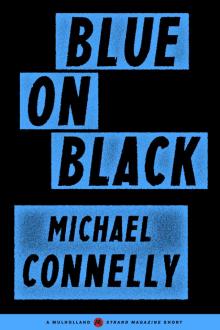 Blue on Black
Blue on Black The Black Ice (1993)
The Black Ice (1993) Crime Beat: A Decade of Covering Cops and Killers
Crime Beat: A Decade of Covering Cops and Killers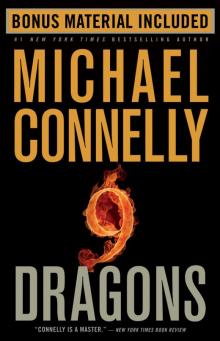 Nine Dragons
Nine Dragons The Late Show
The Late Show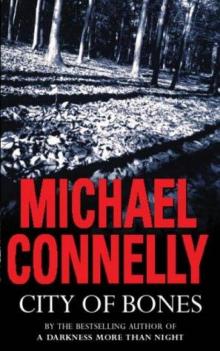 City of Bones
City of Bones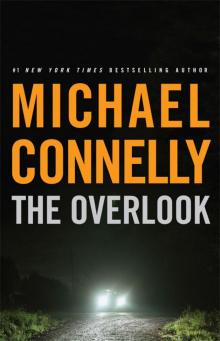 The Overlook
The Overlook The Crossing
The Crossing The Poet (1995)
The Poet (1995) Murder Worthy
Murder Worthy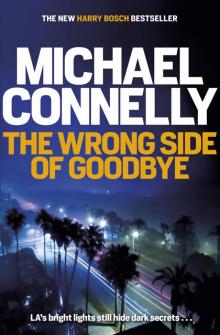 The Wrong Side of Goodbye
The Wrong Side of Goodbye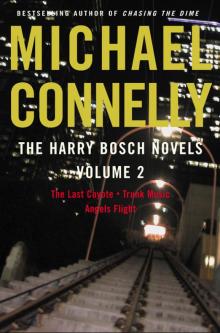 Harry Bosch Novels, The: Volume 2
Harry Bosch Novels, The: Volume 2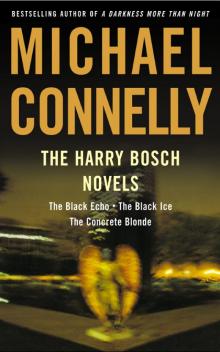 The Harry Bosch Novels
The Harry Bosch Novels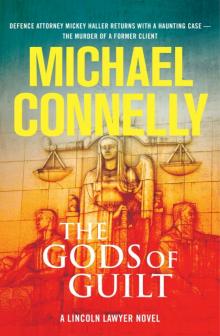 The Gods of Guilt
The Gods of Guilt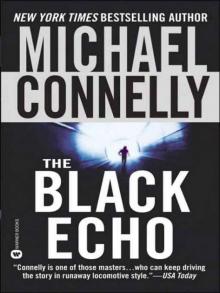 The Black Echo
The Black Echo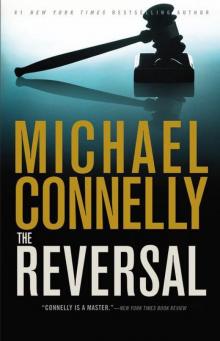 The Reversal
The Reversal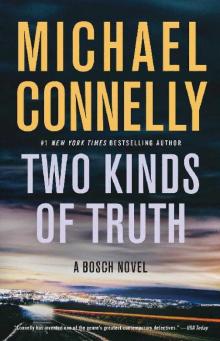 Two Kinds of Truth
Two Kinds of Truth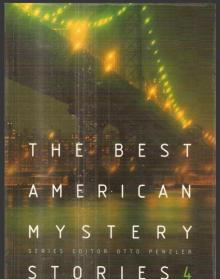 The Best American Mystery Stories 2003
The Best American Mystery Stories 2003 The Rag
The Rag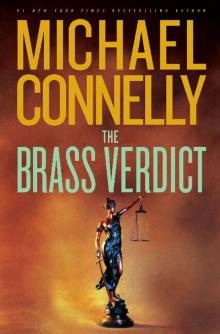 The Brass Verdict
The Brass Verdict The Black Echo (1992)
The Black Echo (1992)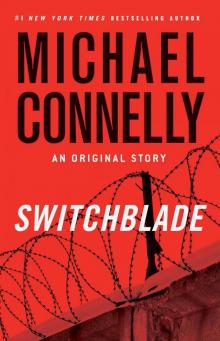 Switchblade
Switchblade The Last Coyote
The Last Coyote The Narrows
The Narrows The Concrete Blonde (1994)
The Concrete Blonde (1994)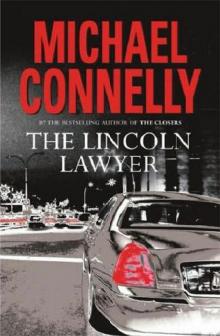 THE LINCOLN LAWYER (2005)
THE LINCOLN LAWYER (2005)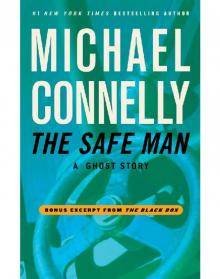 The Safe Man: A Ghost Story
The Safe Man: A Ghost Story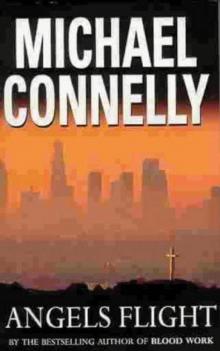 Angels Flight (1998)
Angels Flight (1998) Void Moon
Void Moon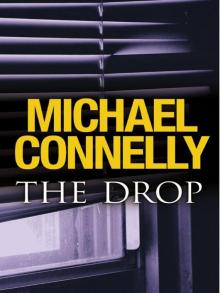 The Drop
The Drop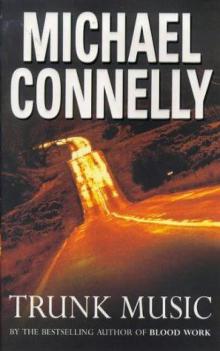 Trunk Music
Trunk Music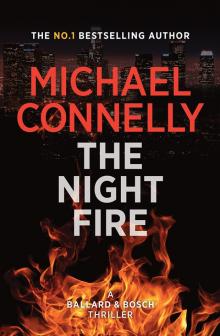 The Night Fire
The Night Fire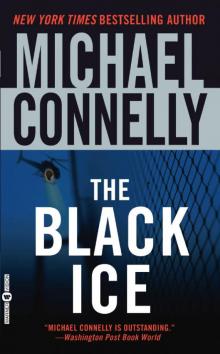 The Black Ice
The Black Ice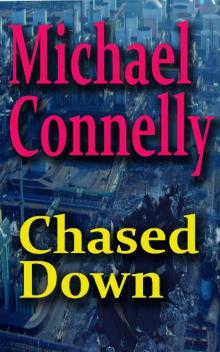 Chased Down
Chased Down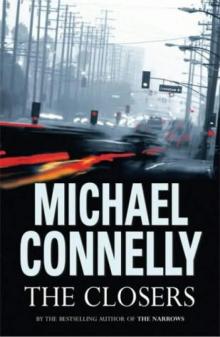 The Closers
The Closers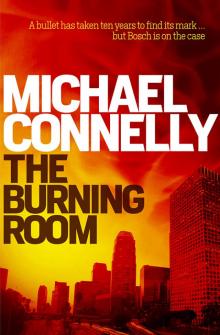 The Burning Room
The Burning Room Angels Flight
Angels Flight SSC (2012) Mulholland Drive
SSC (2012) Mulholland Drive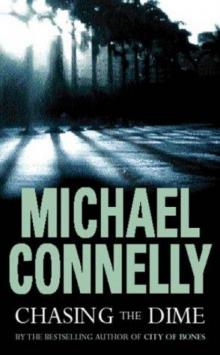 Chasing the Dime
Chasing the Dime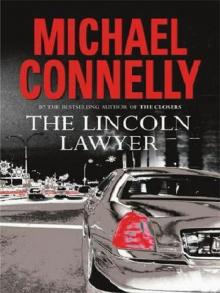 The Lincoln Lawyer
The Lincoln Lawyer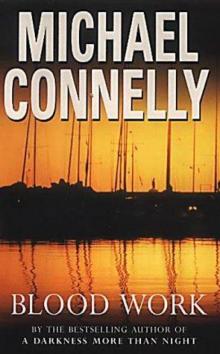 Blood Work (1998)
Blood Work (1998) Echo Park
Echo Park A Darkness More Than Night
A Darkness More Than Night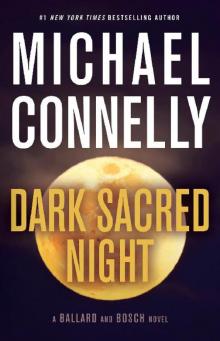 Dark Sacred Night - Ballard and Bosch #1;Renée Ballard #2
Dark Sacred Night - Ballard and Bosch #1;Renée Ballard #2 Lost Light
Lost Light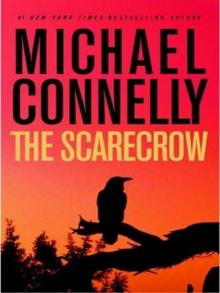 The Scarecrow
The Scarecrow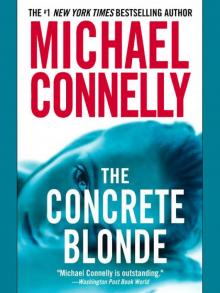 The Concrete Blonde
The Concrete Blonde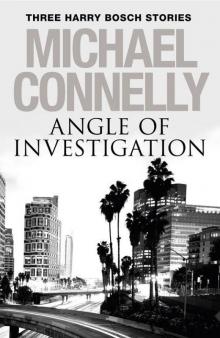 Angle of Investigation
Angle of Investigation Suicide Run: Three Harry Bosch Stories
Suicide Run: Three Harry Bosch Stories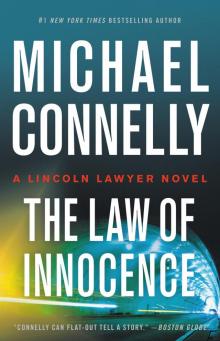 The Law of Innocence
The Law of Innocence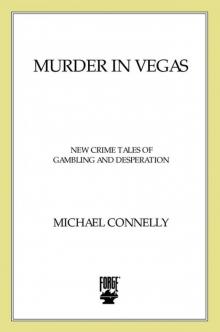 Murder in Vegas: New Crime Tales of Gambling and Desperation
Murder in Vegas: New Crime Tales of Gambling and Desperation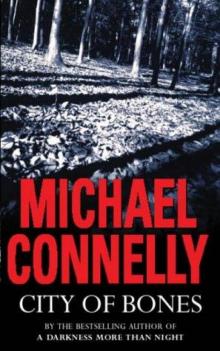 City Of Bones (2002)
City Of Bones (2002)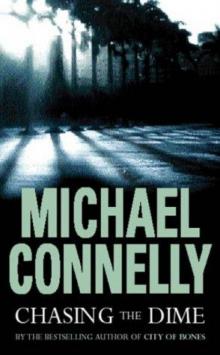 Chasing the Dime (2002)
Chasing the Dime (2002)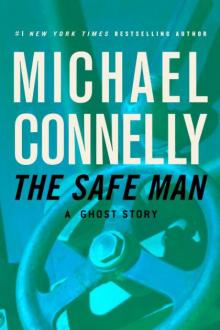 The Safe Man
The Safe Man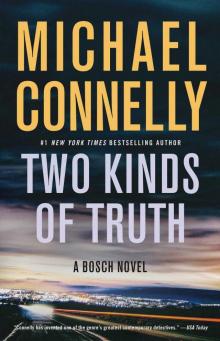 Two Kinds of Truth (A Harry Bosch Novel)
Two Kinds of Truth (A Harry Bosch Novel)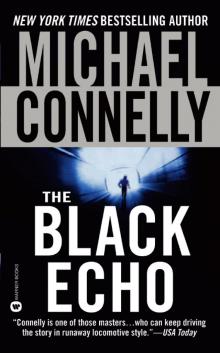 Harry Bosch 01 - The Black Echo
Harry Bosch 01 - The Black Echo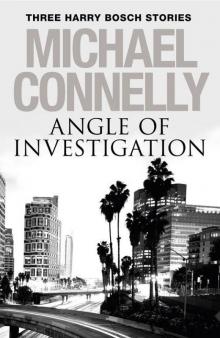 Angle of Investigation: Three Harry Bosch Short Stories
Angle of Investigation: Three Harry Bosch Short Stories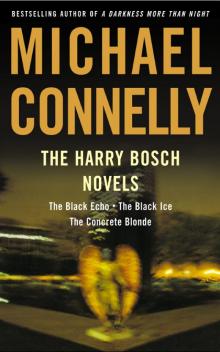 The Harry Bosch Novels Box Set 1
The Harry Bosch Novels Box Set 1 The Concrete Blonde hb-3
The Concrete Blonde hb-3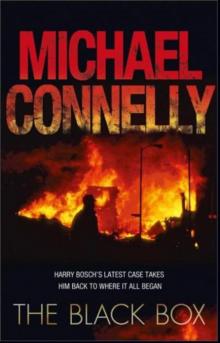 The Black Box hb-18
The Black Box hb-18 Short Stories
Short Stories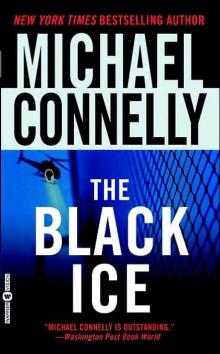 The Black Ice hb-2
The Black Ice hb-2 The Last Coyote (1995)
The Last Coyote (1995) The Gods of Guilt mh-5
The Gods of Guilt mh-5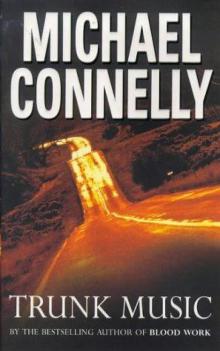 Trunk Music (1996)
Trunk Music (1996)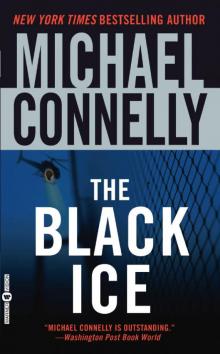 Harry Bosch 02 - The Black Ice
Harry Bosch 02 - The Black Ice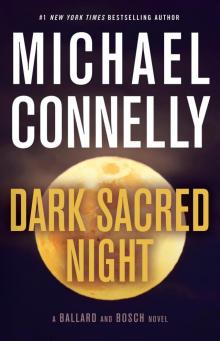 Dark Sacred Night
Dark Sacred Night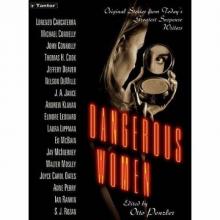 Cielo Azul
Cielo Azul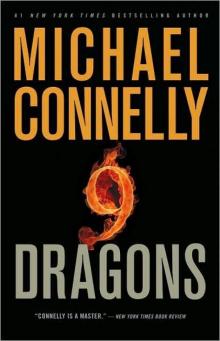 9 Dragons
9 Dragons The Narrows (2004)
The Narrows (2004)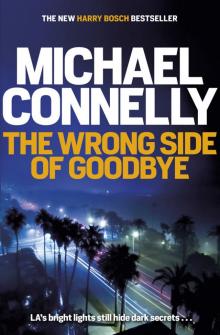 The Wrong Side of Goodbye (Harry Bosch Series)
The Wrong Side of Goodbye (Harry Bosch Series)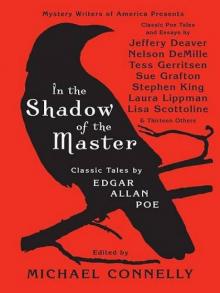 In The Shadow Of The Master: Classic Tales by Edgar Allan Poe
In The Shadow Of The Master: Classic Tales by Edgar Allan Poe Void Moon (1999)
Void Moon (1999)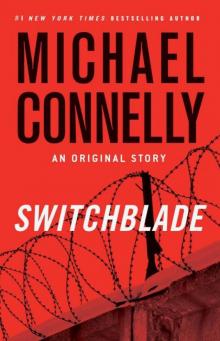 Switchblade: An Original Story (harry bosch)
Switchblade: An Original Story (harry bosch)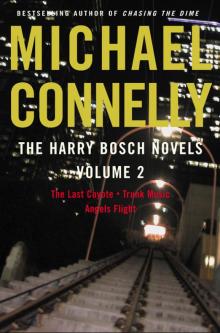 The Harry Bosch Novels, Volume 2
The Harry Bosch Novels, Volume 2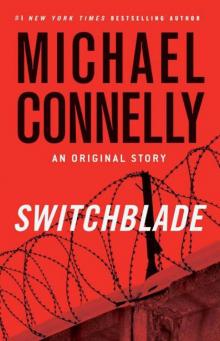 Switchblade: An Original Story
Switchblade: An Original Story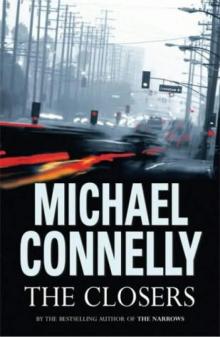 The Closers (2005)
The Closers (2005) Crime Beat
Crime Beat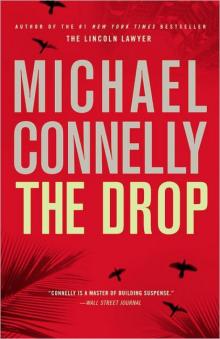 The Drop hb-17
The Drop hb-17 The Gods of Guilt (Mickey Haller 5)
The Gods of Guilt (Mickey Haller 5) Mulholland Dive: Three Stories
Mulholland Dive: Three Stories Lost Light (2003)
Lost Light (2003)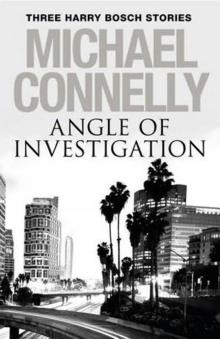 Angle of Investigation: Three Harry Bosch Stories
Angle of Investigation: Three Harry Bosch Stories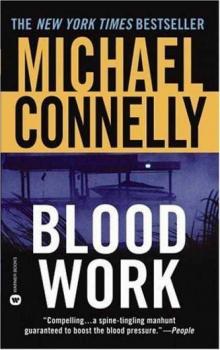 Blood Work
Blood Work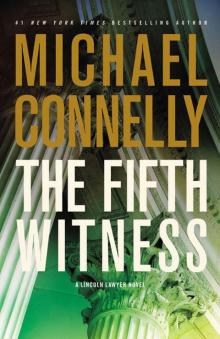 The Fifth Witness: A Novel
The Fifth Witness: A Novel A Darkness More Than Night (2000)
A Darkness More Than Night (2000)